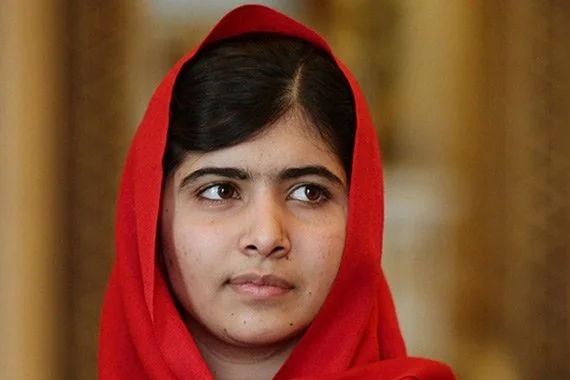Malala Yousafzai
When Malala Yousafzai was asked what she wanted to do for her 17th birthday earlier this year, she did not hesitate with her answer. The Pakistan native wanted to go to Nigeria and campaign for the release of more than 200 missing schoolgirls who had been kidnapped by the militant Islamist movement Boko Haram. The girls’ supposed offense? Simply wanting to go to school.
Malala herself was just 11 when she started speaking out against the Taliban and for her right to go to school. She was only 15 when a Taliban gunman boarded a school bus and shot her in the head. The assassination attempt failed. While the Taliban intended to kill an innocent girl who simply wanted to right to an education, they instead gave birth to an extraordinary global movement.
The 2012 shooting resulted in a massive outpouring of support for Malala, which continues to this day. Wise beyond her years, Malala has been able to channel her celebrity into advocacy for the education of girls worldwide. Unfortunately, the Taliban still considers Yousafzai a target. Despite the threats, Yousafzai remains a staunch advocate for the power of education. The Malala Fund, named in her honor, now offers girl-centric approaches to education that support the goal of creating a world where every girl reaches her true potential. On October 10, 2014, Malala was awarded the Nobel Peace Prize.
“The terrorists thought they would change my aims and stop my ambitions,” Malala has said, “but nothing changed in my life except this: weakness, fear, and hopelessness died. Strength, power, and courage were born.”


